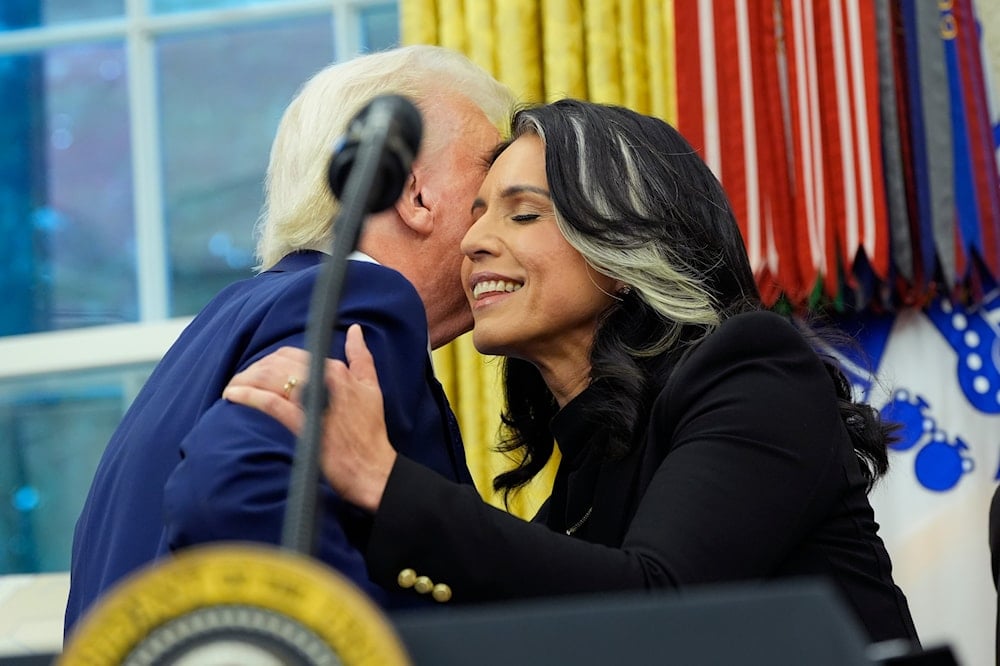Democrats warn of US spy agencies politicization under Trump
Top Democrats accuse Trump and Tulsi Gabbard of politicizing US intelligence, weakening national security, and straining global intelligence ties.
-

US President Donald Trump congratulates Tulsi Gabbard after she was sworn in as the Director of National Intelligence in the Oval Office of the White House, Wednesday, Feb. 12, 2025, in Washington (AP)
Senior Democrats on both the House and Senate intelligence committees sharply criticized the Trump administration Thursday, accusing it of politicizing US spy agencies and weakening national security through ideological loyalty over expertise.
Sen. Mark Warner (D-Virginia), the top Democrat on the Senate Intelligence Committee, delivered a forceful floor speech, arguing that the administration has “rewarded loyalty over competence” and systematically purged seasoned intelligence officers, notably citing the removal of a former National Security Agency head. According to Warner, deep budget cuts to intelligence agencies have eroded America’s ability to fight foreign disinformation and defend against cyber attacks.
“These changes put us in real danger,” Warner warned, adding that adversaries like China and Russia could exploit the vacuum at a perilous moment, given growing global tensions. Warner lamented what he described as a removal of long-standing “guardrails” that once protected the United States.
Gabbard's politicization under scrutiny
In parallel, Director of National Intelligence Tulsi Gabbard, a former political figure, sparked controversy by asserting that earlier administrations also politicized intelligence, a claim she used to justify revoking security clearances from 37 current and former national security officials this year.
On the House side, Reps. Jim Himes (D-Connecticut) and Joaquin Castro (D-Texas) sent a letter Thursday to Gabbard demanding clarity on whether US strikes targeting suspected drug cartel boats have curtailed intelligence sharing with allies.
There are reports that Colombia, Britain, and the Netherlands have limited cooperation after missile strikes killed dozens of people allegedly involved in trafficking, raising serious questions about due process, international law, and the use of force.
“To the extent that targeted killings of alleged drug traffickers … reduce the willingness of our partners to work closely with our national security agencies, the United States will be less safe as a result,” the lawmakers wrote.
Colombia’s president recently took to social media, declaring that intelligence sharing would remain restricted “as long as missile attacks on boats in the Caribbean continue.”
In response, a Gabbard spokesperson referred to comments by Secretary of State Marco Rubio, who defended America’s close partnerships with the UK and other states. Rubio also rejected reports that Britain has scaled back intelligence cooperation over the strikes, labeling them “a false story.”

 3 Min Read
3 Min Read










